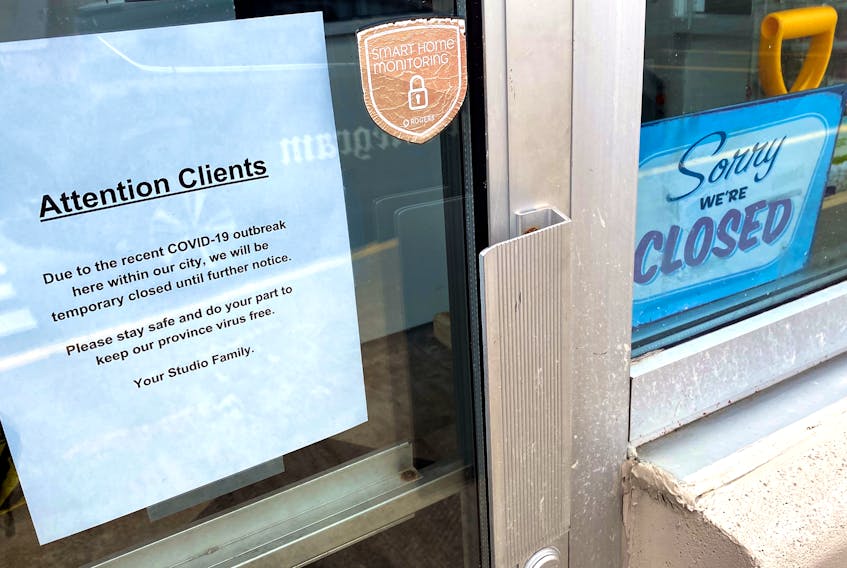ST. JOHN'S — It isn’t hard to find the effects that the COVID-19 pandemic has had on the businesses community in the province.
A quick look around many of the communities on the island and in Labrador will turn up closure signs from some and advisories that others have attempted to adapt to changing times.
Dr. Thomas Cooper is an associate professor with the Faculty of Business Administration with Memorial University.
Looking at the landscape of the province, he doesn’t see many businesses who were not impacted by the pandemic. Some have seen a small positive impact but for the most part businesses have struggled.
Related
- Wills, affidavits, and more to be witnessed electronically during COVID-19 pandemic
- B&B owners hope to salvage summer with local tourism within Newfoundland and Labrador
“The question is what is the new normal going to be when the government starts to roll out things,” said Cooper. “What is going to be accepted and what is not going to be accepted.”
Another question local businesses will have to answer has to do with the rollout and how those businesses are going to deliver their services. We’ve already seen business offer curbside pickup, online orders and other adaptations from businesses in an attempt to get their product to the people they serve.
“I have seen some business go to online markets really quickly and have done really, really well, and others have said, ‘no, call us up and we will tell you what we got,’” said Cooper. “I think if you can be in an online marketplace, that is going to help.”

Cooper said in a time of declining environment there are four different strategies that you can have.
“You can divest or dispose, so you can basically get out. You can harvest, which is take profits and invest them into other businesses,” said Cooper. “You differentiate, so you can say we’re different than Amazon or we’re different than Wal-Mart because we do this. That is local, immediate response, that sort of thing.
“Or alternatively, you have a niche focus. We’re not going to open our restaurant but we’re going to have an open kitchen.”
As the province readies to roll out its phased approach to opening the province, there are questions what that rollout will look like.
Pauline Snow, the president of the Lewisporte and Area Chamber of Commerce, believes it will be a gradual re-opening for businesses.
She believes those who closed first at the pandemic, like hair salons and clothing stores, may be the last to reopen as they operate at close distance with customers and they will need to navigate that circumstance.
“This has to be treated with clear borders because you don’t want second wave to hit,” said Snow.
"... if you can be in an online marketplace, that is going to help.” — Dr. Thomas Cooper
Some of that can be mitigated by limiting the number of people in a store at any one time or perhaps customers to try on clothing items in store.
Returns may also become a thing of the past in the clothing industry.
“I personally think a lot of small business owners may think this may not be a bad time to exit,” said Cooper.
If businesses don’t close up shop, he believes there could be access to some cheap financing —low-interest loans — from the government

“I think there will be a lot more access to advice, especially from the federal government,” said Cooper. “It's not just what's going to happen in the next two weeks, it is what is going to happen two years or three years because this is very much a long term view.”
Gerald Thompson is the executive director for the Exploits Regional Chamber of Commerce and his group deals with businesses of varying sizes and specialties.
From the businesses he has heard from, there is some worry that employees might not be that inclined to return to work until they’ve reached their limit with the federal government’s Canadian Emergency Response Benefit reaches an end.
One thing he and his businesses would not like to see is a hasty response to the downturn in the number of new cases seen across the province.
“Let’s not rush this , let’s do this safely,” said Thompson.
Nicholas Mercer is a local journalism initiative reporter for central Newfoundland for Saltwire Network.









